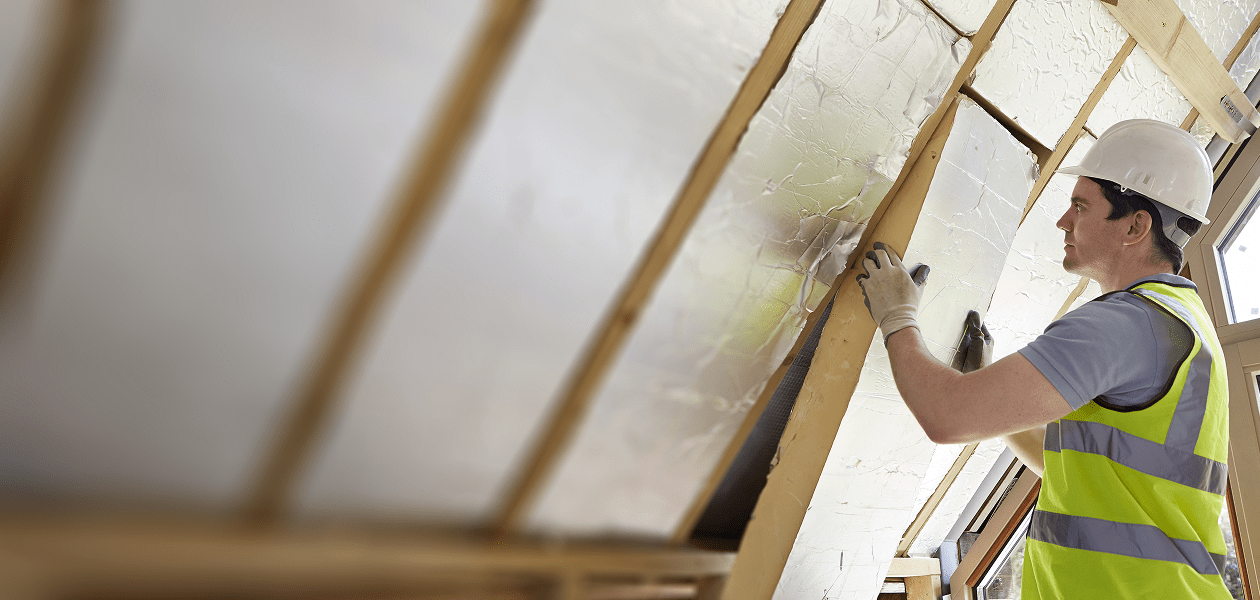Updated December 2025
If you’re tackling a home improvement project from insulating your loft to garage improvements, you'll soon realise that there are a number of different insulation types.
Different parts of a house need different solutions. What works perfectly between loft joists won’t necessarily be right for a solid wall or a tight roof space. The good news is that most home insulation falls into a handful of categories.
Let's break down the main insulation types used in UK homes, what they’re made from and where DIYers typically use them.
Common Insulation Types for Home Projects
| Insulation Type | Usually Made From | Common Uses | Why DIYers Choose It |
|---|---|---|---|
| Insulation Boards | PIR, phenolic foam, polystyrene, wood fibre | • Walls • Floors • Roofs • Garage conversions |
• High insulation in thin boards • Easy to cut to size • Great for large flat areas • Clean to work with |
| Insulation Slabs & Rolls | Glass wool, mineral wool, sheep’s wool | • Loft floors • Stud walls • Ceilings • Timber floors |
• Flexible and forgiving to fit • Sits neatly between joists • Good for heat and sound • Budget-friendly |
| Multifoil Insulation | Polyethylene with layered reflective foil | • Roofs • Renovations • Limited-space builds |
• Very slim profile • Reflects heat back into the room • Built-in vapour control • Lightweight and easy to handle |
| Acoustic Insulation | Mineral fibre, sheep’s wool, acoustic layers | • Bedrooms • Home offices • Party walls • Media rooms |
• Reduces noise between rooms • Helps block outside sound • Also improves thermal comfort |
| Insulated Plasterboard | Gypsum bonded to PIR or phenolic insulation | • Internal walls • Ceilings • Refurb projects |
• Insulate and board in one go • Speeds up jobs • Less mess on site • Ready for decorating sooner |
What Each Type Is Best For
Insulation Boards
Rigid boards are a popular choice for DIYers who want strong insulation without losing too much space. They’re commonly used in walls, floors and roofs and are ideal for projects like garage or loft conversions where performance matters.
Insulation Slabs and Rolls
This is often the go-to insulation for lofts and stud walls. Supplied in pre-cut widths, slabs and rolls are easy to fit between joists and timbers, making them a good choice for first-time installers. They’re also great if you want some added sound reduction.
Multifoil Insulation
Multifoil is a good option when space is tight. Instead of relying on thickness, it reflects heat back into the room. It’s especially popular in roof builds and renovation projects where increasing rafter depth isn’t practical.
Acoustic Insulation
If noise is the problem rather than heat, acoustic insulation is worth thinking about. It’s commonly used in bedrooms, home offices and shared walls to help reduce sound travelling between rooms or from the neighbours.
Insulated Plasterboard
Insulated plasterboard combines insulation and plasterboard in one product, making it ideal for speeding up refurb jobs. It’s often used on internal walls and ceilings where you want to improve insulation without rebuilding the structure.
How to Choose the Right Insulation
When deciding which insulation to use, ask yourself:
-
Where is it going? (loft, wall, floor, ceiling)
-
How much space do I have?
-
Am I insulating for warmth, noise or both?
-
Is this a quick upgrade or a full renovation?
Choosing the right insulation can make a huge difference to both the comfort of your home and help bring those energy bills down.
If you need help, get in touch with our team for expert advice.




